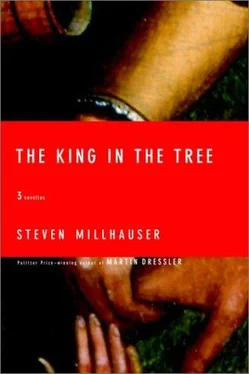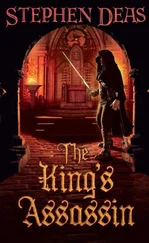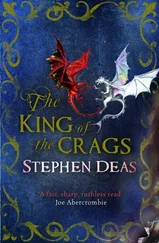He received a note describing a plan. Mary would contrive an excuse to return to the house during their morning walk; he would be with Georgiana, alone. It seemed to him unlikely, an impossible scheme doomed to failure, but the next day it happened: he found himself alone with Georgiana on a winding path not far from the first grotto. Sunlight fell on the oak and beech trees. In the warm air the rich green odors burned his nostrils like firesmoke. Nearby he heard the rush of a cascade, punctuated by the repeated cry of some animal that might have been a fox. The warm air, thick with dusky light, the heavy scents of green, the edges of Georgiana’s gown brushing against bushes, the two of them moving slowly through green shade and green sun, all this made Juan feel drowsy and heavy-headed, as if he could barely push his way through the rich, cloth-like air. He spoke very little. When he did speak, the sound of his voice struck him as grotesque. After a short time, or perhaps it was a long time, they returned in silence to the house.
“How was your little walk?” Mary called from a window.
“Most extraordinarily remarkable,” Georgiana replied. “And how goes your headache?”
“Oh, much— very much better, thank you, I—”
In his sitting room, Juan stretched out on his sofa and recalled the time in Seville when he was fifteen years old and the chambermaid had looked at him strangely. She had suddenly reached for his hand and placed it on her stiff black dress, over her breast. Juan had removed his hand, considered a moment, and then plunged it deep inside her dress. As he lay on his sofa, bitterly reviewing his wasted walk, he compared the boldness of the boy with the ludicrous confusion of the thirty-year-old man. And with a little burst of anger he thought, “Those doctors don’t know anything. There’s definitely something wrong with me.”
It was about this time that Hood one afternoon invited Juan and Mary and Georgiana to visit Avernus. Work had been progressing splendidly; it was complete, except for a few minor details. In the early afternoon the party set out along the broad riding path, in the calash drawn by a bay. The graveled path wound through the gardens, passing a tea pavilion, a small lake with an island, and a statue of Morpheus sleeping on a shady rock. Soon they entered the parkland, where they rolled through dense forests and sunny meadows, along the banks of rushing streams, between cliffs where hawks rose from their nests. Once a deer came bursting out of the woods and startled the horse — Mary cried out as the carriage rocked and threw her against Juan, who had been staring at Georgiana’s throat rippling with light and shade. The woods grew darker and thicker; the carriage came to a halt at the shore of a gloomy lake. Hood, walking with Georgiana, led Juan and Mary along a path to the great cave mouth, where all four paused while Mary read the inscription aloud.
“Careful — steady — hah! — look sharp, now,” Hood said, as he led Georgiana into the cave.
“Oh! This is terribly exciting!” Mary exclaimed as, drawing close to Juan, she followed them in. A moment later she gave a little shriek at the hissing Hydra, which abruptly withdrew, while Georgiana, drawing her shawl tightly around her shoulders, remarked that with so many heads it must be difficult to make up one’s mind. They passed the Gorgon, the flamebreathing Chimaera, hundred-armed Briareus, the tree of false dreams. On the shore of the river Acheron, Georgiana said that Charon reminded her of their old governess, Mistress Grindley. Mary whispered, “You are incorrigible!” and burst into nervous laughter that she instantly stifled.
All four entered the flat boat and were rowed across to the far shore, where Juan pointed out three-headed Cerberus with his neck of wriggling snakes. That dark woman over there, who looked savagely at them before turning away — that was the shade of Dido. And Juan, startled by her passionate, ravaged face, glanced suddenly at Georgiana, who was adjusting her hat. Hood meanwhile had seized a lantern that hung from a hook in the wall and was leading the party along a dark path; at a fork he turned left, toward Tartarus.
They came to a torchlit region where Juan saw a great wall looming beyond a river of fire. From the other side of the wall rose a clamor of groans, the clanking of iron, the crack of lashes. “Stay close!” cried Hood, as they approached a stone bridge that led over the fiery water; halfway across he tossed over the rail a piece of paper, which turned orange and then black as it drifted down.
On the other shore they came to a dark-gleaming gate that rose high above their heads. Hood shouted into the air, over the rush of flaming water and the noise of clanking chains, and Juan saw at the top of the wall a high tower, where a dark figure stood. Hood explained that she was Tisiphone, one of the Furies, who guarded the entrance to Tartarus. Even as he spoke, the great doors began to open on shrieking hinges.
They entered Tartarus and soon came to the iron-railed rim of an enormous pit, where Juan looked down into blackness, lit here and there by small fires. From the pit rose cries and groans, the bang of iron, piercing shrieks, the rumble of stone. A railed flight of stone steps led downward. Hood, holding up his lantern, began the descent. When he turned to look back, motioning them to follow, Juan saw his cheeks glowing in the lantern light like red iron.
At the bottom he led them through the fire-crackling, smoky dark, past groaning men and women who lay on the ground, toward an alcove where the shadows of flames moved on the walls. Juan stepped up to the opening and saw a figure bound to a wheel of fire that turned slowly on an axle. The man, barely visible in the flames, screamed as he turned; his eyes glowed with a kind of weary horror. Mary put her hands over her eyes, while Georgiana turned disdainfully away, but Juan stared in melancholy fascination at the fiery man turning in torment on his hellish wheel.
The wheel began to turn more slowly; gradually it came to a stop. Almost upright, though still bound to the wheel, and wearing only a blouse and breeches, the man looked at the visitors and said: “I am Ixion.” With awkward dignity he bowed his head. “You see!” Hood cried above the groans and the clashes of iron. “ ’Tis false fire!” Juan, stricken with disappointment, asked Hood if Ixion might return to his torment, while Mary moved away and Georgiana said, “Sir, I see you have a taste for horrors.” And as the actor on the wheel began to turn and howl in agony, Juan watched for many minutes, until Mary tugged at his arm.
“But who is that?” Juan asked, as they came to a low wall of stone that enclosed an immense man who lay groaning on his back. A vulture sat on the giant’s open chest and tore at his liver. “Why, ’tis Tityus, the Euboean giant,” Hood cried, “who offended the gods by attempting the honor of Leto. Here he lies forever, while a vulture eats his liver, which grows again with each circle of the moon. I can explain the mechanism.” But Juan, not wanting to hear, moved a little away and watched as the vulture tore at the bloody liver, while the giant’s hands clenched and unclenched and his great lips stretched over his teeth.
“Let us leave this horrible place, Augustus!” Mary cried, as Juan strolled to a quieter region where, on a steep path, Sisyphus bent his fierce body against the great boulder pressing against him. Nearby, a bearded man with burning eyes stood up to his chin in a pool of black water. “Here’s a jolly fellow,” Hood was saying. “Behold Tantalus — a precious rogue, whom Virgil omits from his masked ball. ’Tis from Homer I fetched him hence.” Tantalus, licking his dry lips, bent to drink from the water, which sank away from him; and raising his weary head, he reached for the fruit that hung just beyond his grasp, his eyes dark with remorse and longing.
Читать дальше












